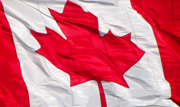The first day of summer, June 21st, has been Canada’s National Aboriginal Day since 1996. It deserves more attention than it gets. We don’t hear enough about the achievements of our Aboriginal citizens, who are 4.3% of the total Canadian population (2011 data).
Guelph has at least two good reasons to celebrate National Aboriginal Day, which recognizes the unique heritage, diverse cultures, and outstanding successes enjoyed by all three of our Aboriginal peoples – the First Nations, Inuit and Métis.
First, we have a number of Aboriginal residents. As a result, Guelph was among a number of cities across Canada that celebrated National Aboriginal Day on Saturday, June 21, 2014. The Guelph Civic Museum hosted a daytime smudging ceremony as well as an evening storytelling and drumming session, sharing circle and social dancing to “celebrate the beauty, wisdom and joyousness of Original Peoples’ cultures and traditions.”
Second, the University of Guelph has a well-established Aboriginal Resource Centre that offers advice and counselling to current and potential aboriginal students. It even offers an Aboriginal Affairs Certificate!
In addition to National Aboriginal Day, Aboriginal success across Canada is recognized through the National Aboriginal Achievement Awards. First established in 1993, these awards are given out in a very classy ceremony broadcast annually on the Global Television Network and the Aboriginal Peoples Television Network (APTN). A total of 14 Awards are presented each year in a variety of categories, including business, education, health, and law. Among the awards is one for Lifetime Achievement and a Special Youth Award that comes with a cash prize of $10,000 from the National Aboriginal Achievement Foundation. (Note: Since 1985 this Foundation’s Education Program has awarded more than $32 million in scholarships and bursaries to more than 8,400 First Nations, Inuit and Métis students nationwide!)
You might ask – where do all of these award winners come from? We hear a lot about the 154 of Canada’s 617 First Nations communities who have financial difficulties and need help managing their affairs. What we seldom hear about are the 463 communities who are doing well. We also don’t hear about the over 37,000 businesses across Canada run by Aboriginal entrepreneurs. For a long list of these and other success stories, go to the Federal Department of Aboriginal Affairs and Northern Development’s website (https://www.aadnc-aandc.gc.ca). Look under the “Aboriginal Peoples” tab!
Typical press coverage on Canada’s Aboriginal citizens presents them as victims. This causes many Canadians to think of them as weak and overly dependent on the rest of us.
We need to do a better job of recognizing Aboriginal success and contribution to Canada’s economy and general national well-being. Next year, let’s pay more attention to National Aboriginal Day!

